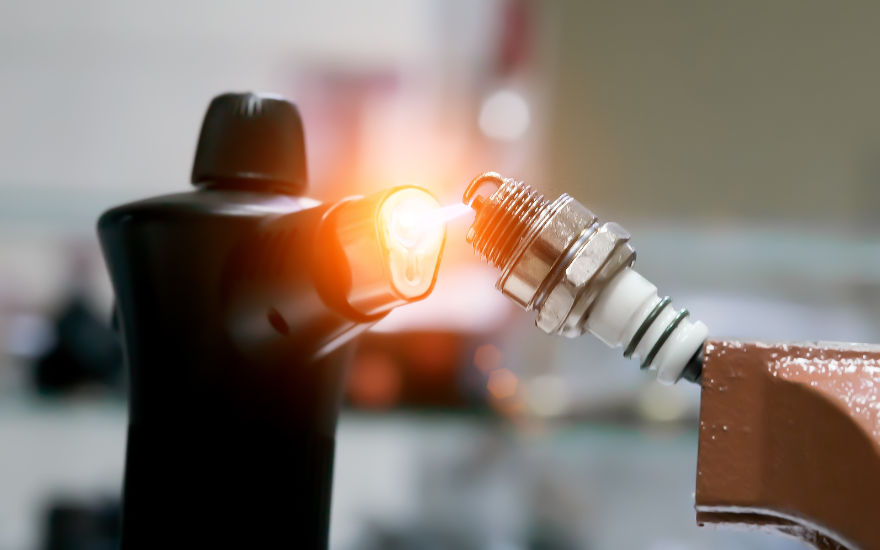Ignition coils are important to the overall functionality and safety of a burner management system (BMS). In addition to maintaining atmospheric emissions and minimizing fuel consumption, a certified coil reduces the chance of a faulty pilot which could result in an equipment fire or complete system shutdown. Profire’s standard ignition coil has proven spark and reliable ignition control. It can be used in conjunction with Profire’s EPX ignition coil housing, which offers an explosion proof coil solution that can be mounted to your ignition source within hazardous locations. These components are part of the complete solutions offered with our PF2100, PF2200 and PF3100 BMS systems.
Working components of an ignition coil
Let us look at the components of an ignition coil. An ignition coil consists of a laminated iron core surrounded by two coils of copper wire. Unlike a power transformer, an ignition coil has an open magnetic circuit. The iron core does not form a closed loop around the windings. The energy that is stored in the magnetic field of the core is the energy that is transferred to the spark generator.
The primary winding has relatively few turns of heavy wire. The secondary winding consists of thousands of turns of smaller wire, insulated from the high voltage by enamel on the wires and layers of oiled paper insulation. The coil is inserted in a plastic case with insulated terminals for the high-voltage and low-voltage connections. When the contact breaker closes, it allows current from the battery to flow through the primary winding of the ignition coil. The current does not flow instantly because of the inductance of the coil. Current flowing in the coil produces a magnetic field in the core and in the air surrounding the core. The current must flow long enough to store enough energy in the field for the spark. Once the current has built up to its full level, the contact breaker opens. Since it has a capacitor connected across it, the primary winding and the capacitor form a tuned circuit; as the stored energy oscillates between the inductor formed by the coil and the capacitor, the changing magnetic field in the core of the coil induces a much larger voltage in the secondary of the coil.
The amount of energy in the spark required to ignite the air-fuel mixture varies depending on the pressure and composition of the mixture. Under laboratory conditions, as little as 1 millijoule is required in each spark, but practical coils must deliver much more energy than this to allow for higher pressure, rich or lean mixtures, losses in ignition wiring, and plug fouling and leakage. When gas velocity is high in the spark gap, the arc between the terminals is blown away from the terminals, making the arc longer and requiring more energy in each spark. Between 30 and 70 milli-joules are delivered in each spark.
To find out more information about our reliable solutions and to design a system for your heating appliance Talk to a Profire Expert.

